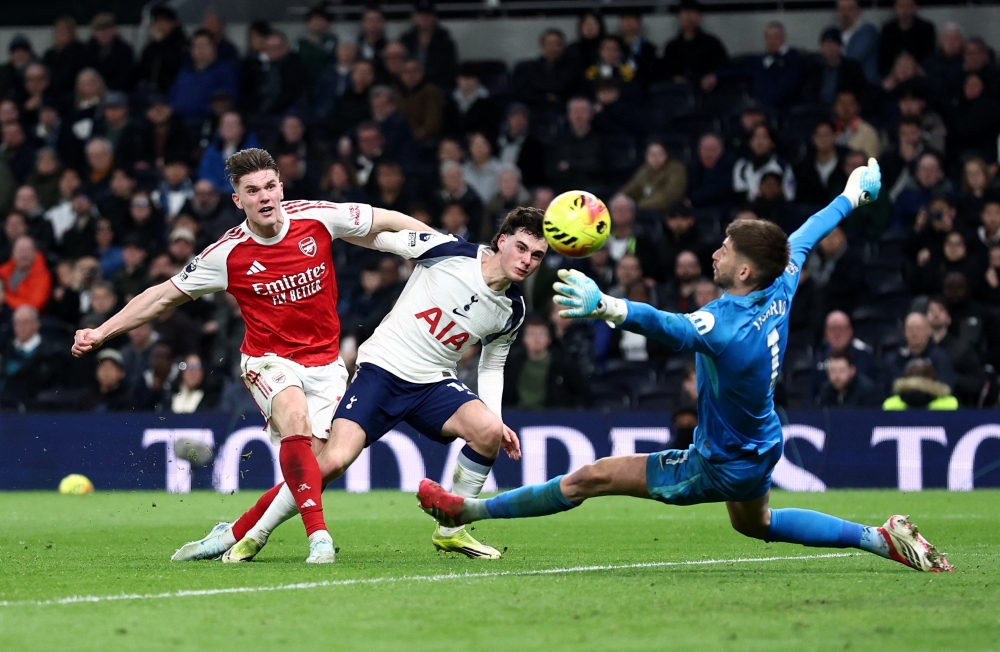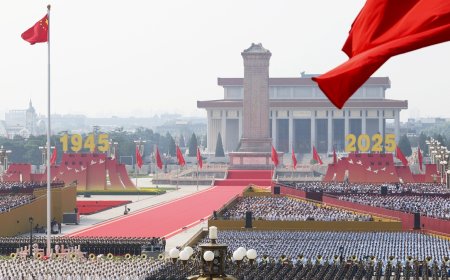Reeves shatters Labour’s promises
Tax raids punish middle classes as Farage accuses Chancellor of breaking manifesto ‘in spirit, if not literally in letter’

Rachel Reeves launched a £13bn tax raid on incomes despite Labour’s manifesto pledge not to target working people.
The Chancellor froze thresholds for income tax and National Insurance for another three years in her Budget, as part of a £30bn package of increases largely targeting the middle classes.
She also announced that tax rates on income generated from property, savings and dividends would be increased, and confirmed a new tax on properties worth more than £2m.
The overall increase pushed the tax burden to the highest it has been in modern history. It makes this parliament the worst for tax rises since records began in 1970, according to data from the Institute for Fiscal Studies (IFS).
On Wednesday night, Ms Reeves refused to rule out coming back with even more increases later in this parliament. The Budget followed £40bn of tax rises last year, after which she initially insisted there would be no further increases before the next election.
There were renewed calls from the Labour back benches for her to resign.
The Resolution Foundation, a Left-leaning economic think tank, suggested that higher borrowing costs meant the Government might still have to “implement significant tax rises and cut public services ahead of the next election”.
The Chancellor herself admitted workers would be affected by her Budget, and said: “I do recognise I’m asking ordinary people to pay a little bit more.”
The tax rises prompted a scathing response from Kemi Badenoch, the Conservative leader, as well as calls from one of her own backbenchers to resign.
Mrs Badenoch dubbed Ms Reeves’s package “a Budget for Benefit Street paid for by working people” and said: “She and this Government have lost what little credibility they have left, and no one will ever trust her again.”
The Liberal Democrats described the raids as an “assault on the squeezed middle”.
Chaotic scenes preceded Ms Reeves’s speech when the OBR’s forecast was accidentally published online 45 minutes early.
The Tories called it “utterly outrageous” and even potentially criminal, given the market-sensitive information it contained.
Richard Hughes, the OBR chairman, apologised and launched an investigation into how the forecaster made the error. Ms Reeves said she retained confidence in him.
Much of the extra money raised in the Budget went on welfare. Benefits spending will be £16bn a year higher in 2029 than was planned in the spring.
Overall, the welfare bill is now expected to rise by £73.2bn to £406.2bn in the next five years.
Income tax thresholds are now frozen until 2030-31, dragging more people into the 40p and 45p rate bands as their annual pay rises in line with inflation.
More than one in four workers – or roughly 10 million people – will be paying the higher and additional rates in income tax by the end of the period, according to the Office for Budget Responsibility (OBR).
The tax rises will partly be used to cover the cost of ending the two-child benefit cap, a move that was cheered on by Labour backbenchers. Ms Reeves also cut energy bills by an average of £150 per household.
But at the heart of the Budget was a second major tax increase in as many years and a fierce debate about whether the Chancellor had broken Labour’s election promises.
The manifesto said: “Labour will not increase taxes on working people, which is why we will not increase National Insurance, the basic, higher, or additional rates of income tax, or VAT.”
The Chancellor accepted in her Budget speech that freezing income tax and National Insurance thresholds – widely dubbed a “stealth tax” – was a tax raid on working people.
She said: “I know that maintaining these thresholds is a decision that will affect working people. I said that last year and I won’t pretend otherwise now.”
However, at the same time, she insisted the manifesto had not technically been broken, because the specific income tax promise was about not raising tax rates, rather than keeping thresholds the same.
Political opponents, respected economists and even Labour MPs questioned her interpretation and said she had indeed broken the manifesto.
The IFS said: “Because [the Budget] includes a freeze in National Insurance thresholds, it also breaches the Government’s manifesto tax promise not to increase National Insurance.”
Sir Mel Stride, the Conservative shadow chancellor, said Ms Reeves’s position was “untenable” because she had “clearly” broken her promises. He said: “They have got to be accountable for what they are doing now.”
Nigel Farage, the Reform leader, said: “She’s broken the manifesto in spirit, if not literally in letter. Everyone who works, taxes will go up, and if inflation keeps running at 4 per cent, 5 per cent, whatever it is, effectively their taxes are going to go up significantly over the course of the next few years.”
Graham Stringer, the Labour MP for Blackley and Middleton South, told The Telegraph: “I think she has broken her promise from last year and the manifesto. I think she has lost all credibility; it is difficult to see how she can continue.”
A second Labour MP, who asked not to be named, also told The Telegraph that he considered the manifesto promises to be broken.
Asked in a press conference if taxes could rise again in coming Budgets, Ms Reeves said: “Although I believe that we can beat those forecasts – we’ve beat them this year, the Conservatives’ legacy is not our country’s destiny – we also all know that if you ignore the forecasts you pay a huge price in the cost of government borrowing.”
The tax increases came amid a mixed economic picture. Economic growth was downgraded, despite Ms Reeves and Sir Keir Starmer previously insisting it was their “number one priority”.
The OBR also warned that higher taxes and food prices would keep inflation higher for longer, despite Ms Reeves’s decision to cut energy bills.
Living standards are expected to barely grow this parliament as lower growth and a sustained tax raid bear down on incomes. One think tank said it would be the second smallest rise across a parliament since the 1950s.
The threshold freeze was just one of more than 40 tax changes announced by the Chancellor after she backed off an initial plan to increase income tax rates.
The tax rate on income generated from property, savings and dividends will increase by 2 percentage points. The Chancellor said the existing rates were “not fair”.
A new mansion tax was announced, with properties worth £2 million and above facing annual charges of between £2,500 and £7,500. Four new tax bands will be created after revaluations of homes in that price bracket.
Electric vehicles will be hit by a new pay-per-mile scheme, as first revealed by The Telegraph, which will kick in from April 2028.
Money was also raised by making salary sacrifice schemes less generous and increasing gambling duties. Fuel duty will be frozen until next September but then gradually rise by 5p.
Ms Reeves also increased the air passenger duty paid by people travelling in private jets.
The Chancellor said: “These are my choices – the right choices for a fairer, a stronger, and more secure Britain.”
Much of the revenue generated was spent not to counter deteriorations in the public finances, which were less severe than feared, but to cover increases in benefit spending.
The scrapping of the two-child benefit cap will let parents claim Universal Credit and tax credits for third and additional children. It will lift some 450,000 children out of poverty.
The change – a demand of many Labour MPs for years – combined with about-turns earlier this year on the winter fuel cut and disability benefits reform, has pushed up the Government’s costs.
Benefits spending will be £16bn higher a year by the end of the decade than had been the case in March, according to the OBR, despite Labour rhetoric about the need to control the soaring bill.
Total spending on welfare jumps by £73bn to £406bn over the next five years, in part due to increased spending on the triple lock that protects state pensions.
Ed Balls, the former Labour shadow chancellor, called the package of measures “a classic Left-wing Budget: put up taxes on everyone to pay for higher benefits”.
Economists questioned the trajectory laid out by the Chancellor, which has the spending increase arriving straight away, but extra tax revenues kicking in mainly later in the decade.
However, markets reacted positively to the Budget, which left the Chancellor with £22bn of headroom when meeting her fiscal rules. Government borrowing costs fell by the most since April, and the pound rose against other currencies.






















































